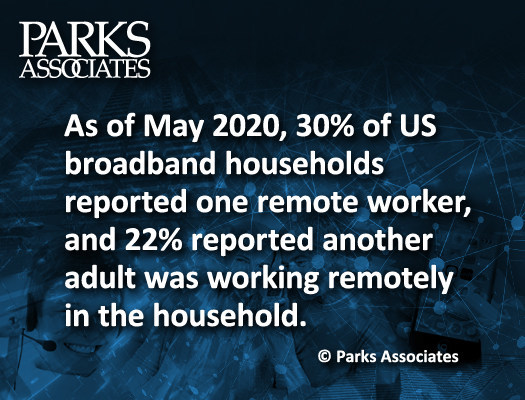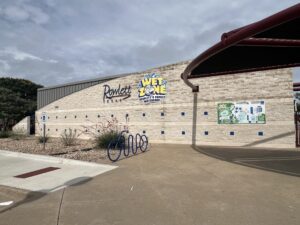DALLAS, Aug. 26, 2020 — New research from Parks Associates’ Market Snapshot: Voice as a Lifeline and the Transformation of Home Telephony reveals a surge in home telephony during the COVID-19 outbreak. The Market Snapshot, developed in partnership with the DECT Forum, finds that as of May 2020, 30% of US broadband households reported one remote worker and 22% reported another adult was working remotely in the household. These conditions contributed to the recorded increase in voice and video calls reported by Comcast, AT&T, and Verizon. Globally, Deutsche Telekom, Virgin Media, and Orange Group also noted increases in mobile and voice traffic and increased strain on their networks.

“During the COVID-19 pandemic, people across the globe are reaching out via voice calls from home for both personal and professional reasons,” said Brad Russell, Research Director, Connected Home, Parks Associates. “The combination of shelter-in-place, work-from-home, school-from-home, and other new from-home lifestyles has led many consumers to rediscover the value in voice. This opens new value for fixed-line telephony as many mobile networks have struggled to keep up with the increased usage.”
“We are delighted to work in partnership with Parks Associates to show the continued relevance for DECT wireless technology and the importance of reliable communication in times of crisis,” said Ruth Wilson, Chair Marketing, DECT Forum.
In North America, the UK, and throughout the European Union, the number of fixed-line connections had been decreasing for a number of years due to shifts to mobile and VoIP calling, but the fixed-line is still an important lifeline for consumers such as the elderly, rural residents, and lower income households. The COVID-19 crisis has further underscored the value of traditional landlines, as the value proposition for voice services has expanded to deliver more telehealth and work-at-home use cases.
“A renewed concern for the elderly, vulnerable, and socially isolated will drive appreciation of technologies that keep loved ones connected, cared for, and safe,” Russell said. “Telemedicine, remote patient monitoring, and independent living solutions will all require telephony support. Service providers and regulators would be wise to consider how fixed-line calling (traditional and VoIP) continues to figure significantly in long-term network strategy and how new service bundles might serve the emerging work-from-home and eldercare markets.”
































